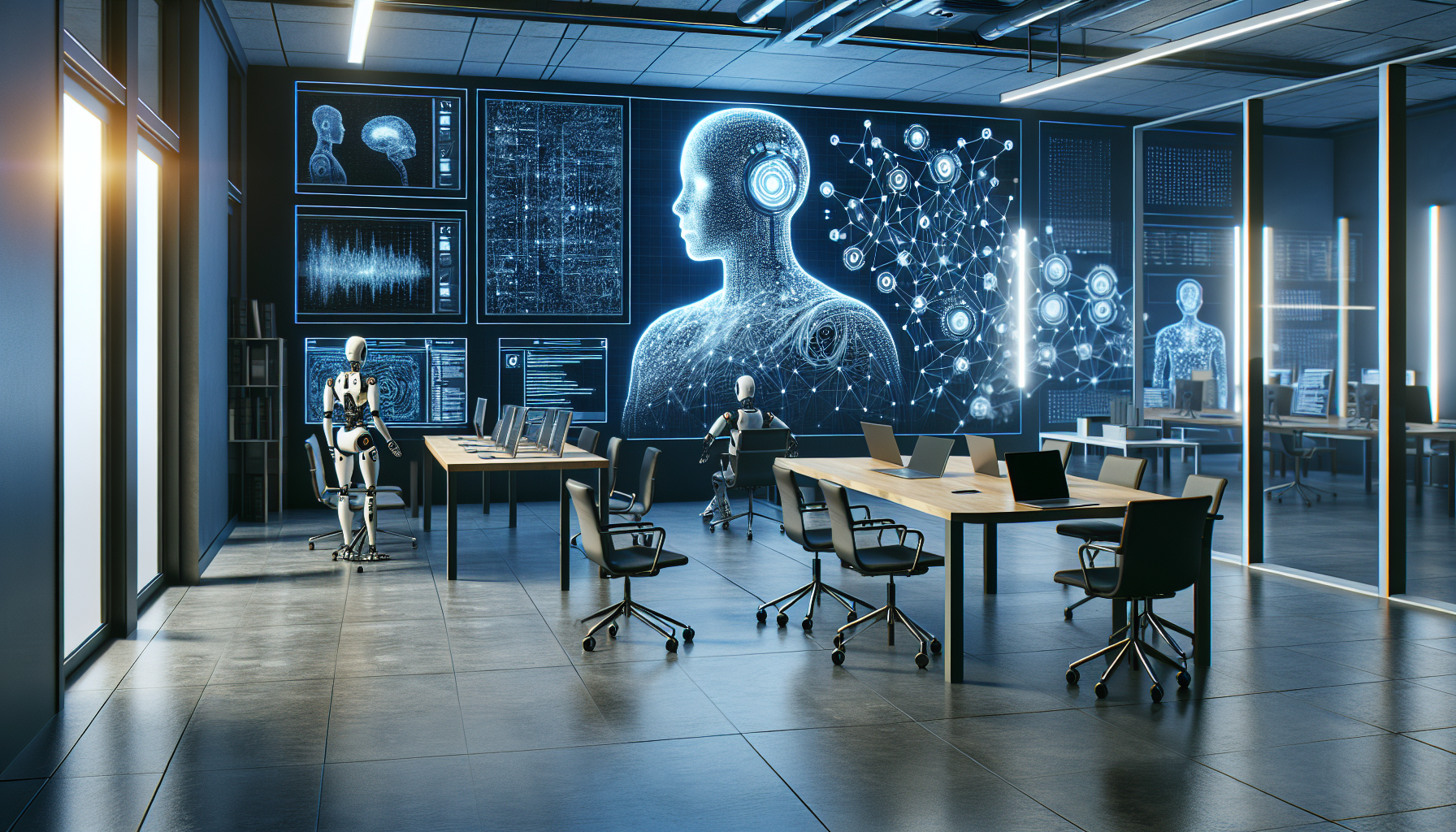
The Evolution of Artificial Intelligence: From Concept to Reality-A Comparative Journey of Innovation
May 20, 2025
Artificial Intelligence (AI) was once a dream confined to the realms of science fiction, a vision of machines that could think and learn. Today, it stands as a transformative force, reshaping industries, economies, and daily life. How did AI evolve from mere concept to an integral reality? By exploring this journey, we uncover the essence of human ingenuity and the relentless pursuit of knowledge.
The story of AI begins with the simple yet profound question: can machines think? Early pioneers like Alan Turing laid the groundwork with theoretical frameworks, sparking a curiosity that transcended traditional boundaries. These initial ideas were not just about creating intelligent machines; they were about understanding intelligence itself. The quest was philosophical as much as it was technical, prompting humanity to reflect on what it means to be intelligent.
The path from concept to reality was neither linear nor easy. Each era of AI development brought its own challenges and breakthroughs. In its infancy, AI faced skepticism and limited computational power. Yet, it was during these formative years that the first AI programs were born, solving rudimentary problems and offering glimpses of their potential. These early systems were far from the sophisticated algorithms we know today, but they laid a critical foundation.
A comparative look at AI's evolution reveals distinct phases marked by innovation and reinvention. The era of symbolic AI, dominated by rule-based systems, demonstrated how machines could mimic human decision-making. However, it was the advent of machine learning that truly revolutionized AI. By enabling systems to learn from data, rather than relying solely on predefined rules, machine learning opened new horizons, allowing AI to tackle complex and dynamic problems.
This shift from symbolic AI to machine learning was not merely technological; it was a paradigm shift in thinking. Researchers and developers began to leverage vast amounts of data, crafting algorithms capable of self-improvement. This transition underscores a profound truth about AI: its progress is driven by the synergy between human creativity and machine capabilities.
As AI continued to evolve, breakthroughs in neural networks and deep learning brought us closer to creating systems that can perceive and interpret the world with remarkable accuracy. These technologies, inspired by the human brain's architecture, have enabled machines to achieve feats once thought impossible—from recognizing images and voices to playing strategic games at superhuman levels.
Yet, the journey of AI is not just a tale of technological triumphs. It is a testament to the power of collaboration and interdisciplinary innovation. AI's progress has been fueled by contributions from diverse fields, including mathematics, neuroscience, and psychology. This collaborative spirit reflects a broader truth about innovation: it thrives at the intersection of different ideas and perspectives.
While AI has achieved incredible milestones, the journey is far from over. Today's AI systems are still limited by their inability to fully comprehend context and meaning in the way humans do. They excel in specific tasks but struggle with generalization and common sense reasoning. However, these limitations are not roadblocks; they are invitations for further exploration and creativity.
The evolution of AI also presents an opportunity to reflect on ethical considerations and the responsible development of technology. As AI becomes increasingly integrated into society, questions about bias, privacy, and accountability become paramount. Addressing these challenges requires a collective effort to ensure that AI serves humanity's best interests.
As we stand on the cusp of new AI frontiers, one cannot help but marvel at the journey from concept to reality. It is a story of dreams realized and possibilities expanded. AI's evolution invites us to imagine a future where technology not only augments human capabilities but also enriches our understanding of intelligence in all its forms.
In pondering the future of AI, let us consider how this powerful tool can be harnessed to address some of humanity's most pressing challenges. How might AI contribute to solving global issues like climate change, healthcare, and education? The answers may hold the key to unlocking a new era of innovation and progress, where the boundaries of possibility are constantly redefined.


